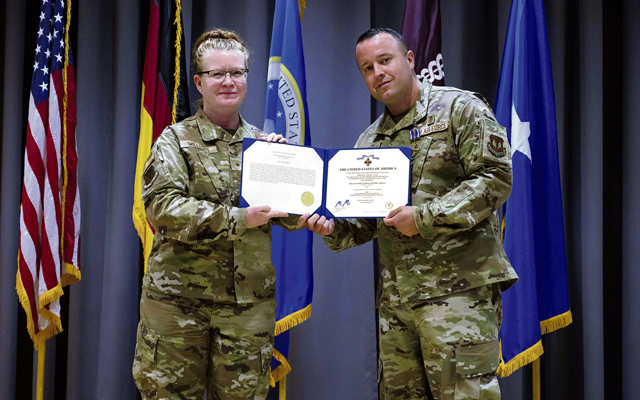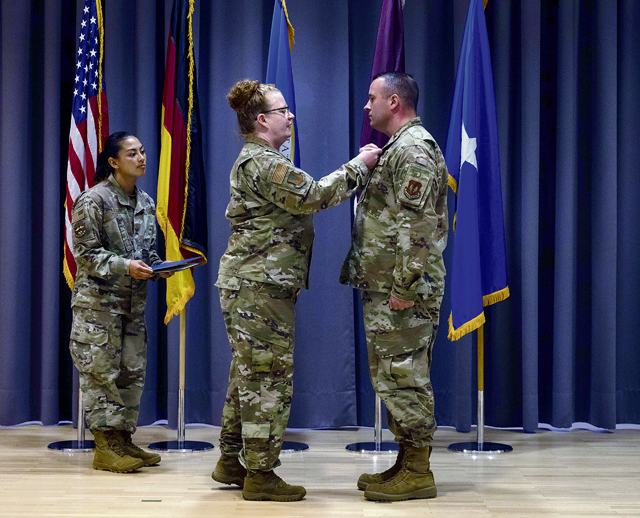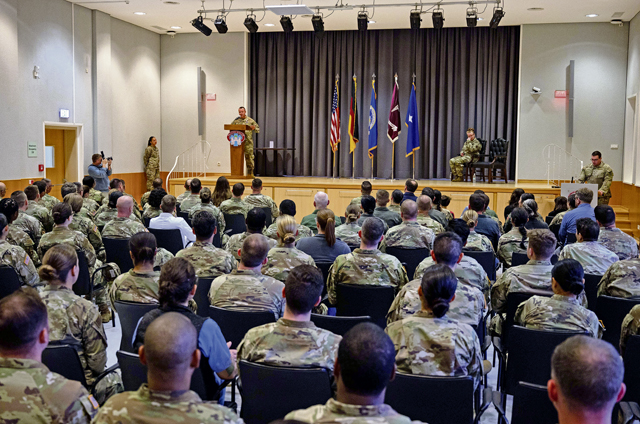
After more than two years of getting lost in the paper shuffle of military bureaucracy, an Airman was finally awarded a rare combat decoration for providing critical care to service members during a large-scale aerial evacuation mission.
U.S. Air Force Master Sgt. Matthew J. Parker received the Distinguished Flying Cross with a “C” device, denoting a combat award, at Landstuhl Regional Medical Center Sep. 6, from U.S. Air Force Brig. Gen. Adrienne Williams, commander of the 86th Airlift Wing based at Ramstein Air Base.
Parker was recognized for the critical care he provided to 11 multi national and joint service members during a mass casualty evacuation operation in support of Operation Freedom’s Sentinel at Hamid Karzai International Airport Aug. 27, 2021.

As the sole respiratory therapist, Parker oversaw the airway, endotracheal tube management, and preflight preparation for three ventilated patients, ensuring the safe transport of all the patients to higher echelon of care and further surgical intervention, according to the citation.
Parker joins the distinguished ranks of notable aviators who were awarded the DFC, such as Brig. Gen Chuck Yeager, first pilot to break the sound barrier, and astronauts Neil Armstrong and John Glenn.
“Most recipients of the Distinguished Flying Cross are, or were, pilots,” said Williams. “Master Sgt. Parker adds a different perspective to the legacy of the award for performing critical medical duties during flight.”
After the initial award submission was lost, Parker reached out to a senior enlisted leader for assistance.
“I reached out to an Air Force chief master sergeant, who inspired me in the past, for help,” added Parker. I was surprised at how quickly she responded to my request for assistance.”

While Parker was naturally disappointed in the delay of receiving his award, he ended up extending his enlistment in the Air Force as a result of the leadership and care exhibited by senior leaders in the military.
“As medics we save lives,” added Parker. “Everybody who works in a hospital contributes to saving lives in some way. That is what we do. And we are lucky to have leaders who shape the lives and futures of service members. As result, we are inspired to continue our service in the military.”


